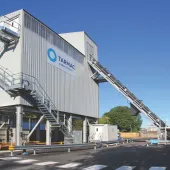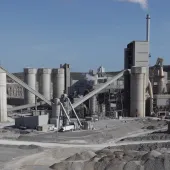A Flock of Sheep and Community Partnership
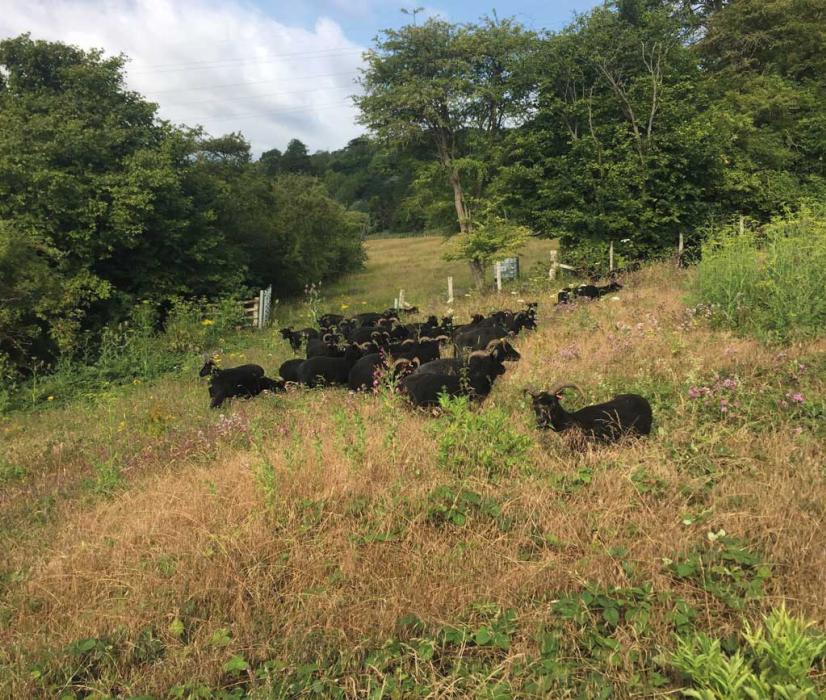
First published in the May 2023 issue of Quarry Management
Tarmac’s answer to better biodiversity
Browse through the headlines of any major UK news site today, and the chances are it will not take long to find an article about the plight of the UK’s rivers, countryside and seas.
Increased exposure through the likes of Sir David Attenborough’s Wild Isles series has turned the nation’s attention to the protection and enhancement of domestic habitats and natural environment more than ever before, and with it an ever-greater focus on responsible environmental management.
With biodiversity net gain targets set to become a mandatory government requirement for all major developments later this year, there is plenty that those working across the wider built environment can learn from the standards the quarrying industry has been setting over recent years.
One recent success story has been taking place over the last decade at a site at Ladd’s Farm, near Snodland, in Kent, an area with a rich history of quarrying and cement production. Tarmac and their partners have been instrumental in one of the largest chalk grassland habitat restoration projects in the south-east of England.
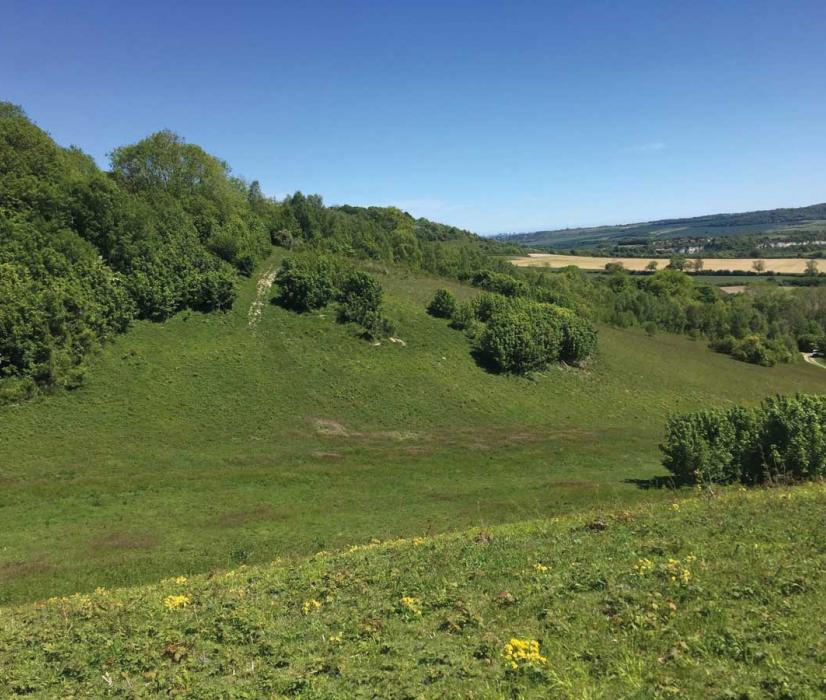
Often likened to tropical rainforests for the rich diversity of wildlife they hold, over 40ha of chalk grassland located on land under Tarmac’s ownership had slowly been taken over by advancing invasive scrub and trees.
Tarmac worked in partnership with Kent Wildlife Trust, the local tenant farmer and ‘Old Chalk New Downs’, a project in Kent which aims to restore and connect remaining fragments of precious chalk downland. Just over 10 years ago, the company set out to restore the grassland and boost biodiversity at the site, parts of which include a Special Area of Conservation (SAC) and a Site of Special Scientific Interest (SSSI).
Mainly found on limestone and in chalk valleys where the soils are lime rich and nutrient poor, chalk grassland provides ideal conditions for a range of flora and fauna to flourish, including flowers, insects, butterflies, mammals and birds. Chalk grassland often houses more than 40 plant species per square metre, which is double that of intensive grassland habitats.
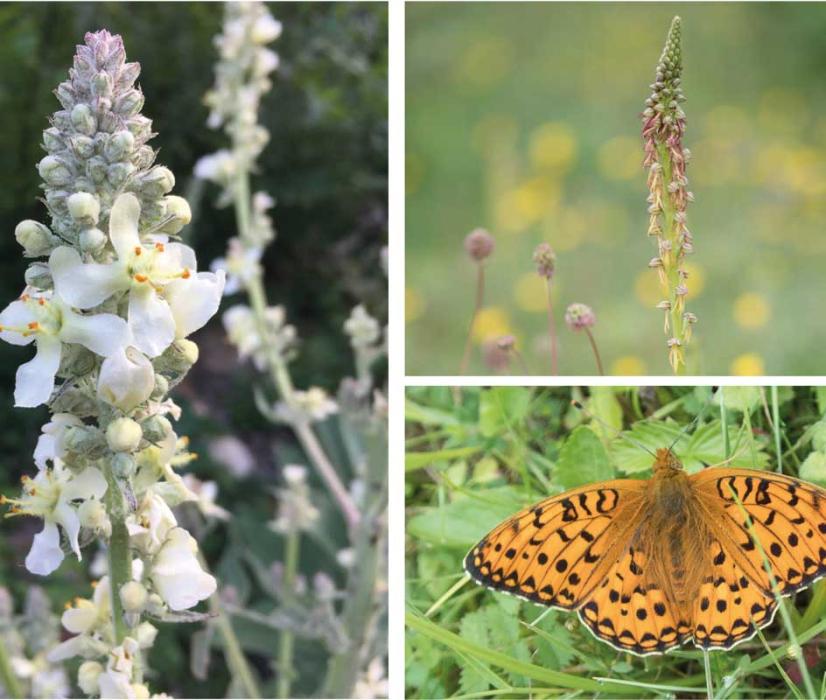
Michael Charlton, Tarmac’s mineral estates manager, explained: ‘Chalk grasslands have been in decline for over half a century but support a rich and diverse flora, attracting plants that do not grow in other soils. It was essential that we carried out a programme of habitat management where there was an opportunity to make a real difference.
‘In the period since we started the restoration work, we have cut back hundreds of tonnes of scrub and removed invasive trees which were shading out the wildflowers.’
Following the clearance of the land, the team reinstated historic fencing using sweet chestnut harvested from nearby woodland on the wider estate. This helped to improve the connectivity of the farm before turning to a secret woolly weapon: a flock of 70 hardy Hebridean sheep.
Mr Charlton continued: ‘The sheep have been the real stars at Ladd’s Farm and remain key to its long-term success – allowing them to roam the hillsides and provide more targeted and effective grazing across the escarpment has been critical to the wider restoration project.
‘The flock effectively maintain the short downland turf and a mixed sward height, browsing on new shrubs that threaten to return to the open grassland. We’ve essentially returned to a traditional type of management that likely stopped in the early 1950s, which has helped to encourage a huge number of wildflowers, insects and butterflies – and we have seen a return to scarce species such as the musk orchid and ground pine.’
Together with the local farmer, a team of local volunteers have been supporting the project by learning how to look out for and care for the welfare of the flock, carrying out daily checks. The grazing itself requires careful management throughout the year, ensuring that each area across the site is not overgrazed.
Steve Weeks, area manager for Kent Wildlife Trust, commented: ‘The Wildlife Trust has had a long association with Tarmac, and it is great to work with a large landowner that recognizes the value of their land for wildlife and actively works to improve it. This is a very special place for many rare and unusual plants and animals and the recent works have helped secure it for the future.’
Collaboration and joint working continue to be essential for the scheme today and have helped to demonstrate that getting biodiversity right can often result in developing stronger links with local communities, interest groups and stakeholders.
Jenny Price, Old Chalk New Downs project manager, added: ‘Our project aims to improve habitats and connectivity along the Kent North Downs escarpment. It is wonderful to be working in partnership with Tarmac and neighbouring landowners to protect our valuable natural resources. This landscape-scale approach not only protects the biodiversity of Ladd’s Farm, but also contributes to improving the sustainability of the wider environment.’
Whilst the quarrying industry has for a long time been at the forefront of habitat creation, projects such as this underscore that there is a much stronger focus on ecological issues than ever before. This is accompanied by a wider acknowledgement that proactive biodiversity management can often help to secure a company’s ‘licence to operate’ from society and hence deliver business benefits.
Michael Charlton concluded: ‘It is fantastic to see how widely the case for biodiversity is now being made and embraced by the UK quarrying sector. Our work at Ladd’s Farm is just one example of the industry working with partners to manage land and protect important habitats and species.
‘It’s very rewarding to see the results on the ground, but equally the growing recognition and understanding from stakeholders and communities that the work we’re doing is by no means corporate greenwash. Biodiversity is now something that is central to our operations and, as land managers, we have a strong responsibility to the habitats where we operate and to mitigate the impact we have through our operations.’
Subscribe to Quarry Management, the monthly journal for the mineral products industry, to read articles before they appear on Agg-Net.com


